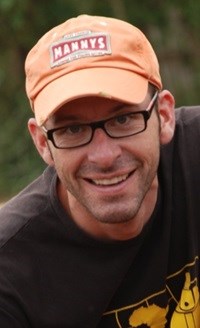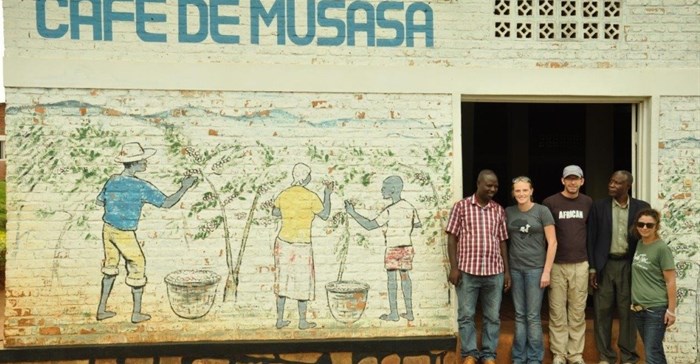
Top stories






More news


Marketing & Media
Ads are coming to AI. Does that really have to be such a bad thing?














Jonathan Robinson: Sustainability could be defined as an ability or capacity of something to be maintained or to sustain itself. It's about taking what we need to live now, without jeopardising the potential for people in the future to meet their needs. If an activity is said to be sustainable, it should be able to continue forever.
This definition is pretty close to what we have in mind when we talk about making a sustainable difference in the lives of African coffee producers. We want the changes made to be permanent and the impact lasting. Sustainability is an investment that continues to produce results as time goes by. Sustainability is not short-sighted or something that can be achieved overnight. It is a long-term commitment to people, projects, and places.
Robinson: The goal of the Bean There Coffee Company is to make a sustainable difference in the lives of African coffee farmers through direct fair trade. We believe that trading directly and fairly with coffee farmers is an investment that not only benefits the producers but also Bean There. We are committed to sourcing high-quality African coffee, purchasing directly from the cooperatives, visiting the farmers regularly, and we work on developing long-term relationships with the producers. In our first ten years, we have been able to give over R4 million in fair trade premiums to our producers and continue to develop strong and authentic relationships with them.

Robinson: Certifications provide structure and accountability. A third party certification adds trust and confidence to the claims of the producer or supplier. Certifications also provide support and marketing value. In the case of the Fairtrade certification, it is important because it adds value to the product and holds all those within the supply chain to internationally accepted standards.
Robinson: We needed to provide proof to the third party certifier that the money we said we were paying for our coffee, was actually being paid. Fairtrade conducts an annual audit to ensure we are paying fair trade prices for our coffee. We also pay a licencing fee to Fairtrade to use the Fairtrade logo and this is based on the quantity of Fairtrade coffee sold. The requirements are generally financial.
Robinson: As mentioned, certifications add accountability and assurances to the consumers that what the roaster claims is happening is actually happening. It also means that, as a roaster, we are assured that the farmers are getting and using their premiums correctly. We are audited annually and so are our producing cooperatives so we know and are provided with proof that the money is going to the right people and being spent in the right way.
Robinson: I don’t recall us facing any particular barriers in purchasing and providing Fairtrade Certified coffee. As mentioned, the certification is a financial commitment which can at times be a strain on the financial side of the business. One has to be committed to the principles of Fairtrade regardless of what it costs and one needs to keep in mind the sustainability of such practices.
Robinson: It is important that roasters back up their claims of fair trade, direct trade, or relationship coffee with proof and certifications are one way to do this. My advice would be to do thorough investigations on the various certifications available and talk to other roasters who are certified to get a better understanding of what’s involved and how certifications work in reality.
Robinson: There are some excellent coffees available that are not sustainably produced nor fair trade and there are some excellent coffees available that are sustainably produced and fair trade. Sustainability and fair trade don’t necessarily translate into quality. What sustainability and fair trade do is guarantee the improvement of quality and the assurance that that coffee will be available in the future. From a conscience point of view, knowing your coffee is sustainably produced and fair trade will certainly make the consuming experience that much better. The average consumer can make a difference in the lives of coffee producers just by carefully selecting what coffee they choose to enjoy.
